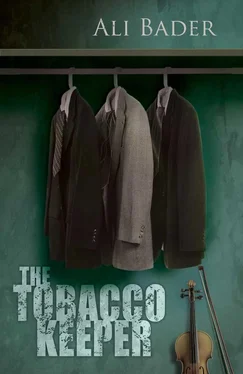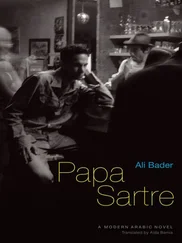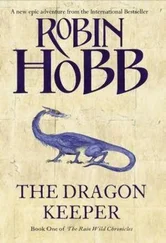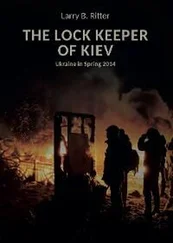Ali Bader
The Tobacco Keeper
Eat your chocolate, little girl;
Eat your chocolate!
Believe me, there are no metaphysics in the world beyond chocolate;
Believe me, all the religions in the world do not teach more than the sweetshop.
Eat, dirty girl, eat!
Tobacco Shop by Fernando Pessoa
I Lives, maps and special documents
On 3 April 2006, less than one month after an armed group had kidnapped him near his home in Al-Mansour City, the body of the Iraqi composer Kamal Medhat was found near the Jumhuriya Bridge that crosses the River Tigris in Baghdad. Iraqi newspapers reported the fact of his death without going into detail. The real twist in the tale came when US Today News reported that Kamal Medhat was none other than Yousef Sami Saleh, of the Qujman family, who’d emigrated to Israel in 1950 during Operation Ezra and Nehemiah — that is, after the decision to strip the Jews of their Iraqi nationality and confiscate their property. He had married Farida Reuben, and their son Meir had been born in Iraq a year before he’d emigrated.
Yousef had found life in Tel Aviv unbearable and, in 1953, he’d escaped to Iran via Moscow, using a forged passport in the name of Haidar Salman. In Tehran, he’d married Tahira, daughter of a wealthy merchant named Ismail al-Tabtabaei, and she had given birth to their son Hussein. In 1958, he had returned with his family to Baghdad, where he’d remained until 1980 when, as an Iranian national, he was expelled to Tehran. His wife Tahira had died during the journey. His son Hussein had been held in prison for more than three years and upon his release he too had been deported to Tehran, where he had tried in vain to find his father.
Haidar Salman had lived as a refugee in Tehran for about a year. Then, at the end of 1981, he’d managed to escape to Damascus with a doctored Iraqi passport in the name of Kamal Medhat. Although he’d remained in Damascus for less than a year, he’d married a wealthy Iraqi woman by the name of Nadia al-Amary. Using his forged passport he’d returned to Iraq early in 1982. In Baghdad his wife had given birth to a son, Omar. It was also at this time, in the eighties, that Kamal Medhat had become the most famous composer in the Middle East.
That summarizes the American newspaper report that was published five days after the discovery of the dead body in Baghdad.
Two days after the publication of the report, US Today News contacted me and asked me to travel to Baghdad to write a thousand-word article on Kamal Medhat. The piece would not, however, appear under my name, but under the by-line of John Barr, one of the paper’s senior correspondents. This is termed ghost-writing or shadowing, in which a reporter travels to a danger zone to write about a hot topic but whose report is attributed to one of the paper’s big-shots. The local reporter gets a fee for his trouble and nothing else. The Press Cooperation Agency and AC Media & News also wanted a full-length biography of Kamal Medhat. They offered to cover all my travel expenses to the cities he’d lived in, provided that the book was based on documentary evidence and genuine interviews. They supplied me with a great many documents, newspapers and letters, and arranged for me to interview a number of his acquaintances in various places around the world. They also organised my trips to the cities where he’d lived: in Baghdad I stayed for over a month at the Agency’s bureau in the Green Zone. I then visited Tehran and tracked down the places he’d lived there. In Damscus I spent two months covering the final phase of his exile.
A portrait of Kamal Medhat
To make my work on this enigmatic character easier, and to form a portrait of Kamal Medhat, I drew together a number of threads.
He was a tall, very thin man with long hair and a light beard. He wore plastic-rimmed glasses and dressed elegantly. His love affairs were many and his emotions mysterious. His encyclopaedic interests included modern art, poetry, literature and politics. He had a deep belief in metaphysics but had indeterminate political views. His readings in philosophy were wide-ranging, if selective.
Kamal Medhat was also an outstanding violinist, winning several international awards. He could speak, and read, six languages: he picked up Hebrew and Arabic at home, studied English and French at school in Baghdad, learnt Russian while studying music at the Tchaikovsky Conservatory in Moscow, and Persian during his time in Tehran.
That would be a reasonable portrait of the man. During my work on his biography, a few surprises changed the whole course of the project. In his house I found a book of poetry containing a poem in a foreign language, which he had annotated. It is important to mention the poem here, before elaborating on its impact.
The truth is, when I visited Kamal Medhat’s house in Al-Mansour City during my investigation into his murder, I came across two books. The first was the memoir of the French violinist Stéphane Grappelli. The other was in English; it had a red cover and was lying on a small teak table in his room. It was a collection of poems called Tobacco Shop , by the Portuguese poet Fernando Pessoa. In the margins, Kamal Medhat had written a lot of notes and comments in pencil. As I was leaving the house, I took the book with me. Having no clue as to the importance of the book or its significance in his life, I did not browse through it right away, but put it in a drawer until the following day. In the morning I started to read it, together with his comments and glosses. What I discovered stunned me. I realized that the book contained many of his secrets. I needed to study it and understand it, because it held important keys to unravelling the mysteries of his life.
In Tobacco Shop , Pessoa presents three different characters, involving three cases of assumed identity. Each one of the fictional characters represents a facet of Pessoa’s own personality, who are all given separate names, ages and different lives. Each has different convictions, ideas and traits. With each personality, Pessoa develops a deeper and broader sense of identity, but ultimately we are left with the true ambiguity of identity. The first character is the keeper of flocks, Alberto Caeiro, while the second is that of the protected man, Ricardo Reis. The third is the tobacconist, Álvaro de Campos. Suddenly we find ourselves confronted by a game à-trois or a 3D Cubist image of a single face.
This is exactly what Kamal Medhat did. He, too, had three personalities, each with a distinct name, age, features, convictions and religion. Yousef Sami Saleh was an enlightened and liberal Jewish musician, born in Baghdad in 1926. When I looked him up in the Encyclopaedia of Iraqi Music , I discovered that he’d died in Israel in 1955. (Curiously, Kamal Medhat himself had written the articles on both Yousef Sami Saleh and Haidar Salman in this encyclopaedia.) When he went to Tehran, he assumed the personality of Haidar Salman, a musician from a middle-class Shia family, born two years before his original persona. Haidar Salman had links with the communist movement throughout the sixties. According to the Encyclopaedia of Iraqi Music , he had died in Tehran in 1981. When he moved from Damascus to Baghdad, he had assumed the third persona, that of the well-known musician Kamal Medhat, born in 1933 to a distinguished family of Sunni merchants from Mosul. During the eighties he’d had personal ties with the regime in Baghdad and had become close to President Saddam Hussein. Kamal Medhat’s entire life therefore proves without a shred of doubt that the notion of an essential ‘identity’ is false. His life demonstrates the possibility of exchanging identities through a series of narrative games. An identity turns into a story that one can inhabit and impersonate. In this way the artist laughs tongue-in-cheek at the deadly struggle of identities through a game of pseudonyms, fake personalities and false masks.
Читать дальше












